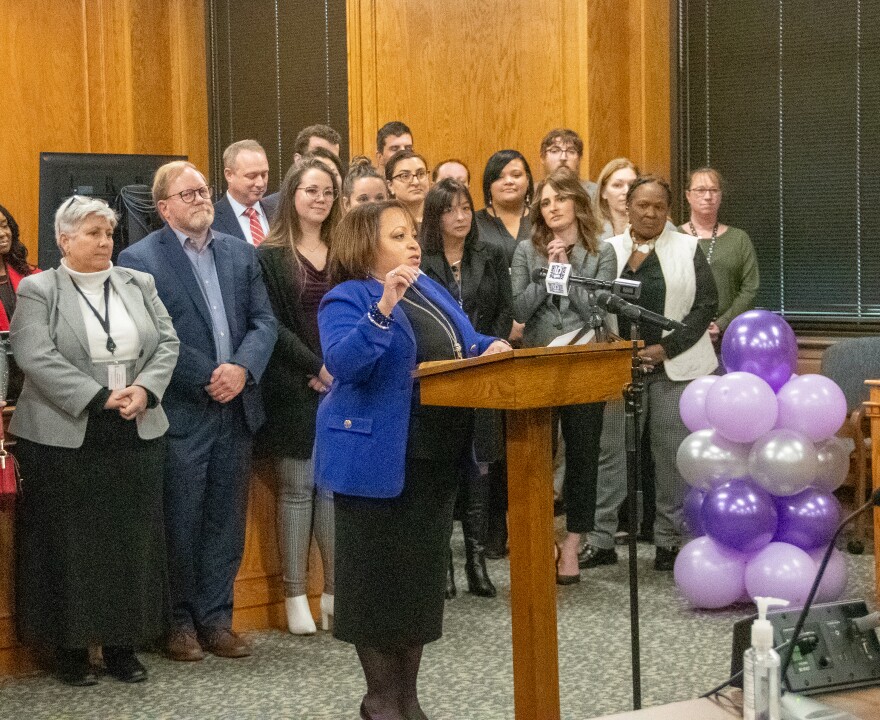The Allen County Superior Court has launched a new problem-solving court focused on perpetrators and victims of domestic violence.
Called the Family Domestic Violence Court, the court merges family law with domestic violence law, the first court to do so in Indiana.
A problem-solving court seeks to promote outcomes that will benefit not only the involved individual but also their family, the victim and society. They were developed as a response to deal with the needs of perpetrators.
Allen County now has nine problem-solving courts, including drug court, veterans court and mental health court.
Judge Lori Morgan, who is overseeing the court, says providing services only in the domestic violence arena only impacts the perpetrator, but the new court allows them to reach others impacted by the situation.
“We’re dealing with the entire family. Which is really what you need in order to move towards healing of a family.”
According to the Women's Fund of Greater Fort Wayne, the domestic violence rate for women in Fort Wayne is one in three. The national average is one in four.
The court began accepting families on March 13 and has four people in the program already. Hearings will begin in the next few weeks.
In order to participate in the court, individuals must acknowledge current or past domestic violence or mental health needs and be approved by the supervising judge. Participants also must not be currently a part of another problem-solving court.
Morgan said there are three phases to the court, which is anticipated to last between eight and 24 months, depending on the needs of the family.
In the first phase, the court will have hearings once a week with each individual. Morgan said this is to provide encouragement and hands-on support.
“In case they have any questions or problems, we’re right there that very next week to kind of lift them up and hold their hands and provide support and encouragement,” Morgan said.
In the second phase, hearings decrease to every two weeks where Morgan said the individuals are then beginning to participate in the services offered.
“And then the last phase, we back off just a little bit,” Morgan said. “The goal of the last phase is to ensure that they have stable housing and the means with which to support themselves beyond case closure, and also that they’re continuing to participate in and to benefit from services.”
At the end of the program, individuals graduate from the court by demonstrating that they have successfully participated in and benefited from services.
The court has received provisional certification for six months, when they will need to apply for certification for three years.


